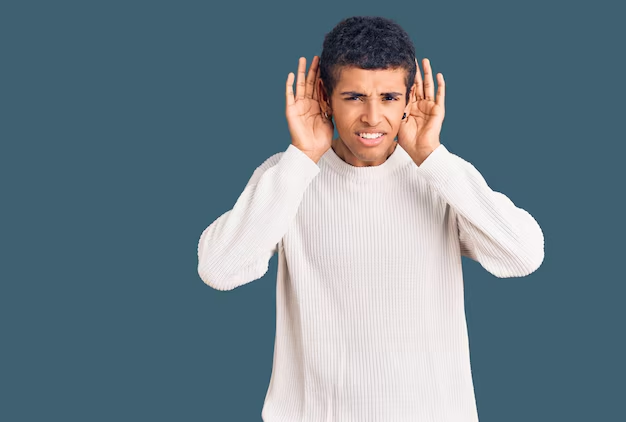Managing Tinnitus: Understanding Relief Strategies
The persistent ringing, buzzing, or hissing in the ears—known as tinnitus—can be a constant source of discomfort and distraction for those who experience it. Although there's no one-size-fits-all solution, there are a variety of techniques and strategies that can help alleviate its impact. From lifestyle adjustments to auditory therapies, each method offers a potential pathway toward relief. Let's dive into practical approaches for managing tinnitus, fostering a quieter, more peaceful living environment.
What is Tinnitus and Why Does It Occur?
Tinnitus is not a disease but a symptom that can result from a range of underlying causes. Often described as a perception of sound in the absence of an actual external noise, it can be triggered by:
- Hearing Loss: Particularly age-related or noise-induced hearing loss.
- Ear Infections or Blockages: Issues such as earwax buildup can affect ear function and lead to tinnitus.
- Head or Neck Injuries: Trauma affecting auditory nerves.
- Medication: Certain drugs have side effects that include tinnitus.
- Underlying Health Conditions: Conditions like high blood pressure or Meniere's disease.
Understanding these catalysts is crucial in identifying personal strategies for minimizing symptoms and improving quality of life.
Lifestyle Adjustments for Tinnitus Relief
Prioritize a Healthy Diet
Good nutrition can play a role in managing tinnitus. Focus on maintaining a balanced diet rich in:
- Antioxidants: Foods like berries and leafy greens can support ear health by fighting inflammation.
- Omega-3 Fatty Acids: Found in fish, they contribute to cardiovascular health, potentially reducing tinnitus symptoms linked to circulation issues.
- Ginkgo Biloba: A traditional supplement believed to improve blood flow to the inner ear, though its efficacy varies among individuals.
Manage Stress Levels
High-stress levels can exacerbate tinnitus by intensifying its perception. Strategies include:
- Mindfulness and Meditation: Practices that promote relaxation and help shift focus away from persistent noise.
- Yoga and Breathing Exercises: Gentle physical activity that encourages stress release.
Establish a Sleep Routine
Quality sleep can significantly mitigate tinnitus symptoms. To foster better rest:
- Create a Bedtime Ritual: Consistency in bedtime routines helps signal your body that it's time to wind down.
- White Noise Machines: Devices that produce soft background sounds may mask tinnitus, facilitating deeper sleep.
Exploring Sound Therapy
At its core, sound therapy is designed to distract the brain from focusing on tinnitus, using a variety of noise sources to provide relief.
Different Types of Sound Therapy
- Masking Devices: Wearable devices that emit low-level noise to cover up tinnitus sounds.
- Notched Music Therapy: Music tailored to exclude the frequency of an individual’s tinnitus, thus reducing its prominence.
- Acoustic Neural Stimulation: Combines customized sounds with music to promote changes in neural activity and diminish tinnitus.
Implementing Sound Therapy
Consulting with an audiologist is recommended to determine which form of sound therapy might be most beneficial. These professionals can tailor therapy to your specific needs, ensuring the best possible outcome.
Cognitive Behavioral Techniques
Cognitive Behavioral Therapy (CBT) adapts psychological techniques to change how individuals perceive and respond to tinnitus. CBT does not reduce the sound itself but helps manage emotional reactions through:
- Behavioral Techniques: Adjustments to daily habits that make coping with tinnitus easier.
- Cognitive Restructuring: Challenging negative thought patterns related to tinnitus.
Enlisting the support of a trained therapist can provide clarity and practical methods to help redefine your relationship with tinnitus.
Potential Benefit of Physical Therapies
Physical therapies target the muscular and postural factors that might influence tinnitus. These include:
- Physical Therapy: Aims to treat musculoskeletal issues that might exacerbate tinnitus.
- Chiropractic Adjustments: Addressing spinal alignment could influence tinnitus, particularly if linked to neck or head injuries.
- Massage: Focused on reducing tension in the neck and jaw could be beneficial.
Leveraging Technology for Relief
New technologies, including smartphone apps and hearing aids, can provide additional support. Apps often feature soundscapes, meditation guides, or CBT techniques. Hearing aids amplify external sounds which can make tinnitus less noticeable.
Choose the Right App
- Consider Features: Look for apps offering a wide range of ambient sound options and customizable programs.
- User Reviews: Reading experiences from other users may guide you to an effective solution.
Miscellaneous Tips and Tricks
Aside from structured therapies, small day-to-day adjustments can also make a difference:
- Limit Caffeine and Alcohol: These can sometimes exacerbate symptoms.
- Ear Protection: Minimize exposure to loud environments whenever possible.
- Regular Exercise: Helps maintain blood flow, potentially reducing symptoms.
Stay Informed and Supportive of Yourself
Empowerment comes from understanding and adapting to tinnitus. Join support groups or forums to connect with others who share similar experiences. Learning from each other can offer new insights and coping mechanisms.
In conclusion, while completely eliminating tinnitus may not be possible, implementing a combination of dietary changes, stress management, sound therapy, and cognitive techniques can pave the way to a more tranquil, satisfying life. Remember, the key is persistence and individualization—what works for one person may not work for another, so exploring different methods and consulting with professionals will guide you toward the best solution.
Quick Summary of Tinnitus Relief Strategies
- 🥗 Healthy Diet: Prioritize antioxidants and omega-3s.
- 🧘♂️ Stress Management: Practice mindfulness and breathing exercises.
- 💤 Sleep Routine: Use white noise machines to aid sleep.
- 🎧 Sound Therapy: Apply masking devices or custom music.
- 🧠 CBT Techniques: Consider cognitive restructuring.
- ⚙️ Physical Therapies: Explore chiropractic or massage options.
- 📱 Tech Tools: Utilize apps and hearing aids for assistance.
- 🚫 Avoid Caffeine/Alcohol: Control dietary triggers.
- 🤝 Community Support: Engage with support groups.
Exploring these methods can help tailor a personal management plan, fostering hope and relief from the nagging presence of tinnitus.

